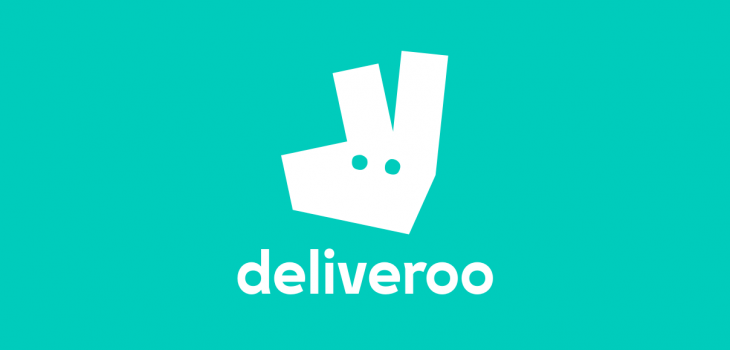Deliveroo’s IPO disclosures: what we’ve learnt

As it looks to woo investors ahead of its stock market debut, Deliveroo has disclosed more information about its business and finances than ever before. Following on from the in depth profile we published last week, we look at what the new information tells us about the company, and what it means for riders struggling for their rights.
Easy money if you’re at the top
The disclosures published last week show just how good life is for those at the top of Deliveroo. CEO William Shu’s controlling shareholding and generous salary have been well covered in the media. But he’s not the only director making big sums while riders complain of poverty pay. New chair Claudia Arney is paid an annual salary of £425,000, while fellow board members Rick Medlock and Lord Simon Wolfson make £125,000 and £90,000 respectively. They also have shares in the company.
Bear in mind that these are not full-time jobs. They are “non-executive” positions, meaning they are supervisory and do not include the day-to-day running of the company. Both Arney and Medlock will split their time with the various other boards they sit on. Meanwhile, Simon Wolfson is the boss of Next, the UK’s biggest clothing firm, so presumably won’t be spending much time down the Deliveroo office. Their hourly rates must be astronomical, and a fair bit higher than the £6.70 Wolfson reckons should be enough for workers to live on.
Riders’ pay still coming second to corporate growth
The registration document confirms Deliveroo is losing money because it is trying to expand so quickly. After revealing another multi-million pound loss in 2020 – £226.4 million – the company says the losses:
“resulted from our investments in, and expenditures relating to, the development of our platform and supporting technology, and the expansion of our business into new areas and further into our existing areas”.
There is more evidence that without this relentless desire to expand – a strategy designed to please investors and boost Shu’s ego – the business would be making enough money to pay its existing riders more and give them the rights they are demanding. Thanks to increased demand for food deliveries due to the COVID-19 restrictions, Deliveroo made even more profit from its riders in 2020 than it did the previous year. ‘Gross’ profit from deliveries increased to £356.3 million, with the ‘margin’ going up from 24% to 30% (there is a breakdown of what that means in last week’s profile). The registration document reveals that the company wrung more money out of riders than ever before, boasting there was a “year-on-year decline in the rider cost per order as we have continued to improve operational efficiency”.
And the company is cash rich. It generated cash from its operations for the first time ever in 2020, making £7.4 million. Another £178 million from shareholders in 2020 helped it increase total cash reserves to £379.1 million by the end of the year. Deliveroo hopes the IPO will add another £1 billion to its bank balance. Time for more of that to go to riders.
UK riders are particularly important
Deliveroo riders in the UK may also want to know they are working in Deliveroo’s biggest and most profitable national market. The document separates the business out into two “segments”: UK & Ireland and “International”, which includes the 10 remaining countries it works in. UK & Ireland contributes over half of total revenue and almost two thirds (£217 million in 2020) of total gross profit. Deliveroo needs to keep riders here happy.
Amazon’s servers are as important to Deliveroo as its cash
Amazon gave Deliveroo a huge chunk of change last year – £440 million – in return for a 16% stake. If Deliveroo raises as much money as it hopes from the stock market, Amazon’s financial backing will become less important. But the new disclosures show Deliveroo will remain dependent on its servers. Amazon Web Services (AWS) is the megacorporation’s cloud computing service, used by many of the world’s biggest organisations, including Apple, the BBC and much of the UK government. The AWS website boasts Deliveroo has gone “all in” on its servers and the stock market disclosure spells out how important its cloud infrastructure is. Deliveroo does not name Amazon, but says it “relies” on a cloud provider and that its Deliveroo app and other tech is “largely hosted” on it.
Who to woo
When Deliveroo shares hit the stock market, expected in the next few weeks, the vast majority of them will only be sold to “institutional” investors. As we set out last week, these are big investment firms, concerned only for whether the share price will rise or fall. Deliveroo aims to raise £1 billion from its IPO and the enthusiasm of these firms will determine how easily it can do that.
You can get an idea of which firms might be interested in a piece of Deliveroo from looking at who is investing in food delivery firms JustEat here or Uber here (scroll down the pages to the “Institutional shareholders” section). Will Shu, Claudia Arney and others at the top will currently be selling Deliveroo to them as best they can. Riders might want to share their side of the story.
Riders who want more information on Deliveroo as it prepares for its IPO can get in touch with us here.
